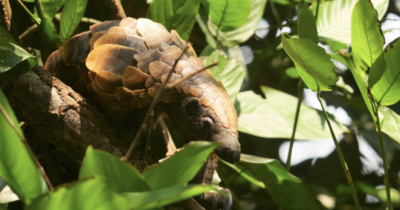
Press Release:
Sacramento, CA – June 18, 2020 – Today, Senator Henry Stern’s (D-Los Angeles) Senate Bill 1175 cleared yet another hurdle on its way to the Governor’s desk when it passed out of the Senate Appropriations Committee with a party-line vote of 5-1. The bill will cut off imports of any wildlife that could spread zoonotic disease like COVID-19, as well as banning the possession of several commonly hunted species from Africa. Senator Henry Stern is working with cosponsors of the bill, political advocacy group Social Compassion in Legislation, and Center for Biological Diversity in addition to partnering with global NGOs PETA, and WildAid.
“With the outbreak of COVID-19 bringing the world’s attention to the effects of “wet” markets on both the animals suffering in them and the profound human health consequences of disease transmission, it is no wonder that a recent Zogby poll showed 75% of Californians support a ban on these markets,” said Judie Mancuso, founder and president of Social Compassion in Legislation, who is a co-sponsor of the bill. “We thank the chair of the Senate Appropriations Committee, Senator Anthony Portantino (D-Pasadena), and Senate Pro Tem, Senator Toni Atkins (D-San Diego) for their leadership in standing up for both conservation and public safety.”
Existing California law defines “live animal markets” as a retail food market where, in the regular course of business, frogs, turtles, and non-poultry birds are stored alive and sold to consumers for the purpose of human consumption. An estimated two million bullfrogs and 300,000 turtles are either seized from their fragile natural habitats, or cruelly bred, then imported into California annually to be sold at live animal markets.
“The time is ripe to shut down wildlife markets,” said WildAid CEO Peter Knights. “It will take a concerted, global effort to end the illegal wildlife trade to protect endangered species and help prevent the next zoonotic pandemic.”
“The international wildlife trade not only poses a disease risk to people, but is a threat to biodiversity,” said Brendan Cummings, conservation director of the Center for Biological Diversity. “Whether it’s dead animals brought in as trophies or curios, or live animals imported as pets or food, our unsustainable appetite for wildlife is one of the main drivers of the extinction crisis. California has long been a trendsetter in environmental protection and with this legislation the state is poised to once again lead the way on curtailing the dangerous and environmentally destructive wildlife trade.”
Much of the discussion from opposition, mainly the Safari Club, and other NRA groups, have centered around their arguments that trophy hunting contributes to the conservation of species in Africa.
“It’s ironic that trophy hunting advocates claim that their “sport” is conserving animals, yet wherever it is allowed we see populations decline.” said Nickolaus Sackett, Director of Legislative Affairs for SCIL. “It is time we take a different approach by valuing wildlife alive rather than dead and hanging on a wall.”
Stay in touch and get the latest WildAid updates.
SIGN UP
